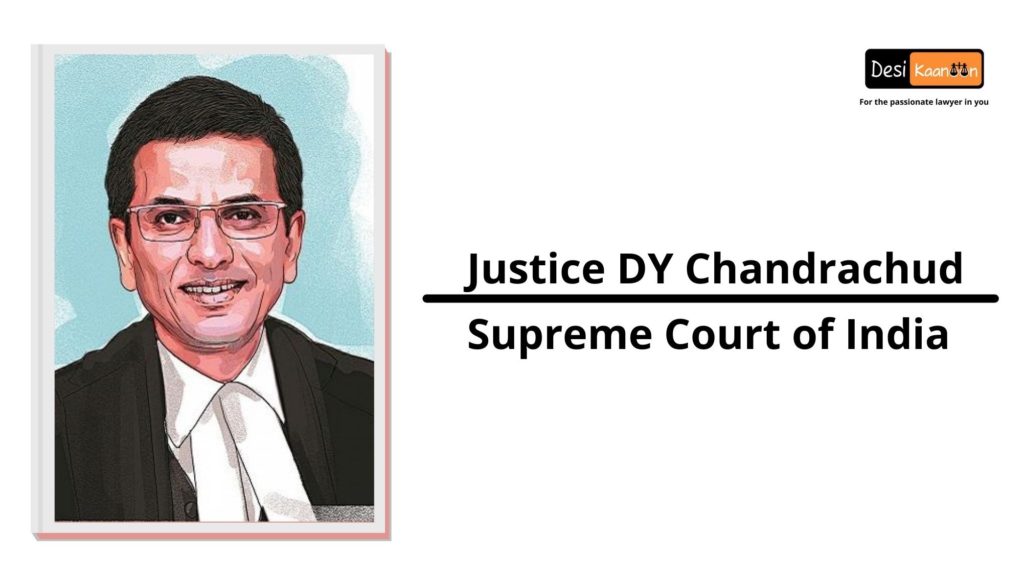Anadi Tewari
The Supreme Court vide circular (dtd: 12th May) has postponed the hearing of the suo-moto case for ‘ensuring distribution of COVID-19 essential supplies and services’ and similar matters. This move comes after when the top Court judge, Justice DY Chandrachud who is also heading the special bench in the foregoing case, had tested positive for COVID-19.
The special bench, which also includes Justices L. Nageswara Rao and S. Ravindra Bhat was slated to hear the suo-moto case today. However, a circular issued by the Supreme Court’s administration stated that the special bench has been deferred since Justice Chandrachud is indisposed and the fresh date for the listing of the matter will be notified later.
The Circular issued by the Supreme Court reads:
“Take note that since one of the Hon’ble Judges of the bench scheduled to hear SMW(C) No. 3/2021 titled “In Re: Distribution of Essential Supplies and Services during a pandemic” and similar matters, on 13.05.2021 (Thursday) has tested positive for COVID-19, the special bench comprising Hon’ble Dr Justice DY Chandrachud, Hon’ble Mr Justice L. Nageswara Rao and Hon’ble Mr Justice Ravindra Bhat in Court No. 5 will not sit and the matters listed before the bench stand deferred and fresh date of listing shall be notified later.”
Under these circumstances, Chief Justice of India NV Ramana, who is also the master of the roster, has the option of either constituting another three-judge bench with some other senior judge to hear the suo-moto matter next week or let the other two present judges apart from Justice Chandrachud of the existing bench to resume the hearing.
On May 10, the Court was supposed to hear this suo-moto matter but due to technical failure in the virtual system, the bench listed the matter on May 13.
On May 13 (today), the special bench was slated to take up an affidavit filed on behalf of the Central Government in response to queries raised by the special bench vide its order on April 30 where the Court had directed the Centre to revisit the vaccine policy to ensure that it withstands the scrutiny of Articles 14 and 21 of the Constitution.
“The manner in which the current policy has been framed would prima facie result in a detriment to the right to public health which is an integral element of Article 21 of the Constitution,” the Court has remarked through its order on April 30.
The Court has also sought the response of the Centre in regard to uneven prices of vaccines for State and Centre.
Centre’s Affidavit in response to queries of the Court
In its response, the Centre has stated that its vaccination policy conforms to the mandate of Article 14 and Article 21 of the Constitution.
The vaccination policy had been framed to ensure equitable distribution with the limited availability of vaccines and vulnerability, and that vaccinating the entire country was not possible in one go due to the suddenness of the pandemic.
The Centre has stated that in times of such a grave and unprecedented crisis, the executive functioning of the government needs the discretion to formulate policy in the larger interest. Therefore, the vaccination drive is devised as an executive policy, and the wisdom of the executive should be trusted.
“The Policy is just, equitable, non-discriminatory and based upon an intelligible differentiating factor between the two age groups,” the affidavit stated.

